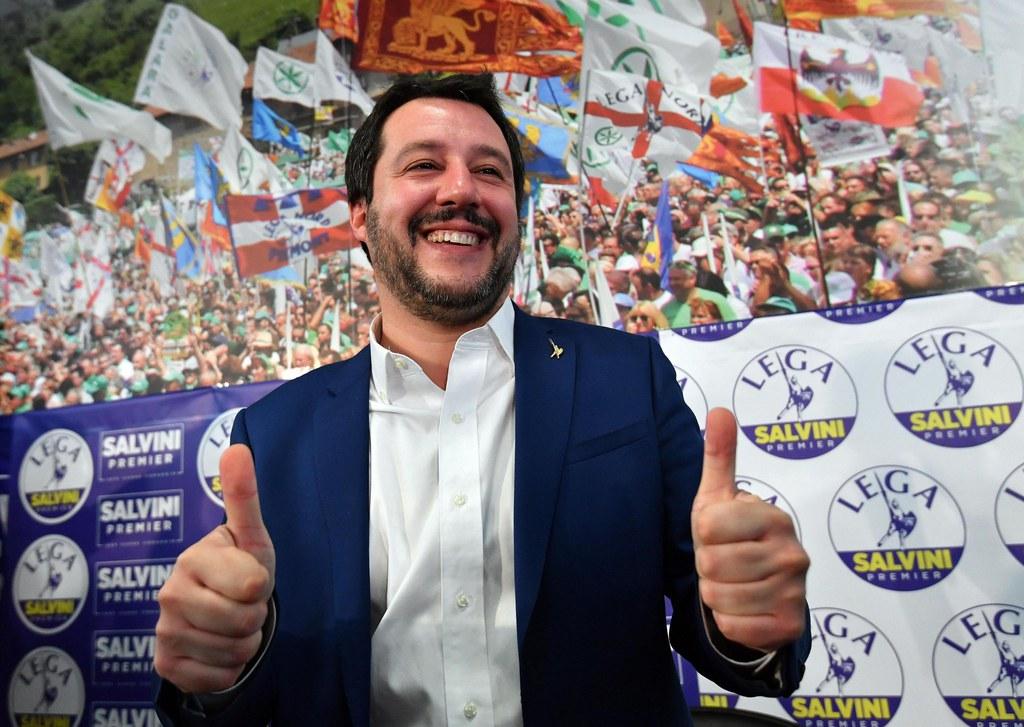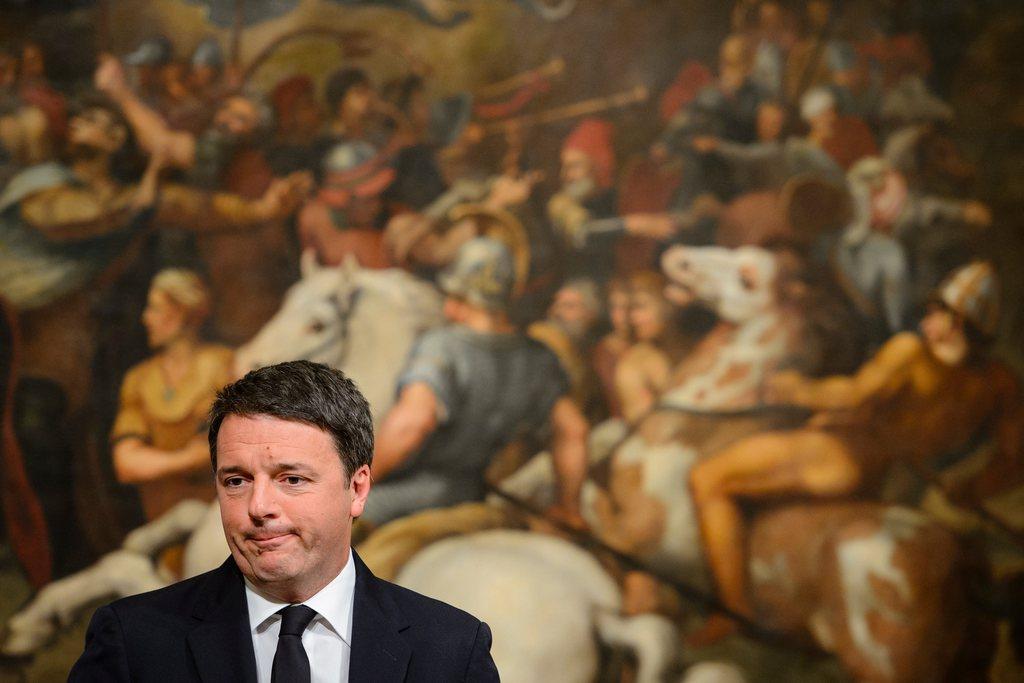Media sees a political tsunami in Italy

The Swiss press has pointed to the huge challenges facing its neighbour Italy, after two anti-establishment parties made huge gains in Sunday’s election. The Swiss media is sceptical as to whether these parties will deliver on their promises.
“A political tsunami in Italy” is how the Aargauer Zeitung/MLZExternal link titles its opinion piece on Tuesday. “Nothing will ever be the same again after this election,” writes Dominik Straub from Rome.
“It’s difficult not to see this as a populist tidal wave,” wrote the French-speaking Le TempsExternal link, continuing the water theme. “More than one in two Italian voters voted for an anti-establishment and anti-Europe party. The northern half for the xenophobic League (Lega) of Matteo Salvini. The southern half for the Five Star Movement of Luigi Di Maio.”
Both papers said that the traditional parties had been swept away. The once strong Democratic Party has suffered its worst result in history, wrote Straub. And for ex-Prime Minister Silvio Berlusconi, whose Forza Italia only gained 14% of the votes, this “could be the definitive end of his era”. The reason: “Protest against the old parties and politicians, against immigration and against Europe”.
The elections
The populist Five Star Movement was the single party that gained the most votes – 33% – on Sunday, while the anti-immigrant League alliance of parties won 37% of the vote. Both have claimed the right to govern. Forming a government is expected to take weeks, with both parties having declared they were open to coalition talks. Meanwhile, former Prime Minister Matteo Renzi has resigned as leader of the governing centre-left Democratic Party, which gained less than 20% of the vote.
The Tages-AnzeigerExternal link follows a similar line, noting that traditional parties’ power is under threat all over the western world and Italy has suffered more than most from the economic crisis.
Coalition talk
A break from the norm would be desirable, if the anti-system powers can provide a half decent and coherent programme for the country, like Emmanuel Macron in France, writes the newspaper’s Sandro Benini. But he is sceptical about the League and Five Star parties’ chances. They may have some points in commen but their fiscal policies are so far apart that a working anti-establishment coalition is hard to imagine, he says. Even if they do manage, it would need a proper programme rather than simply trying to stay in power – and the county’s tentative economic recovery should not be hindered.
Governing a whole country won’t be easy: voters will realise that boatloads of migrants cannot be made to disappear with a magic wand, notes Straub, whose words also appear in the Basler Zeitung and other outlets. An unconditional income in a country with high debts can’t be financed. There could soon be disappointment among disillusioned voters, both he and the Tages-Anzeiger’s Benini note.
Over the border from Italy, in the Italian-speaking canton of Ticino, la RegioneExternal link said that a special political skill would be needed for a coalition – which is currently lacking. The other problem, the newspaper continued, is that the protest vote had been “fuelled by vindictive fears and impulses”, with “us” against “them”. Conflict arises from this global impulse.
The Neue Zürcher ZeitungExternal link wrote that the discussion over immigration had pushed the two most important problems facing Italy into the background; public debt and the decline in justice. “Both problems were caused by politics and must be solved by politics,” it said.
Italexit?
The tabloid Blick External linksees another danger: an “Italexit” – Italy withdrawing from the European Union. “Both successful parties… hate the EU,” wrote the newspaper. A coalition would worry the EU, which had even indicated before the elections that Italy was an exit risk, it added. Brussels would prefer Berlusconi: “Because even if he is power and sex mad, the Cavaliere is nevertheless predictable – and pro-EU”.
For its part, the Corriere del TicinoExternal link, points out that nobody really won the election and there is more now political instability. The EU will be more vigilant over Italy and whoever governs will have to consider the country’s finances, said its editorial. There are encouraging signs from the economy for 2018. “But it is all navigating by sight. The political fog is thick,” it warned.

In compliance with the JTI standards
More: SWI swissinfo.ch certified by the Journalism Trust Initiative



You can find an overview of ongoing debates with our journalists here. Please join us!
If you want to start a conversation about a topic raised in this article or want to report factual errors, email us at english@swissinfo.ch.